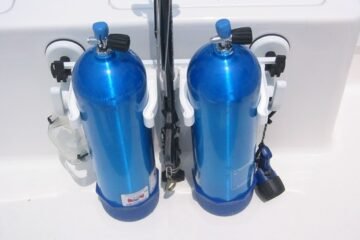When you think about modern buildings, it’s easy to focus on design, comfort, or sustainability — but behind every efficient, well-lit, and seamlessly operating space lies a critical component: electrical engineering. It’s the system that powers everything from lighting and automation to communication and safety.
In this article, we’ll explore what electrical engineering really is, why it matters, and how it’s helping Melbourne’s buildings work smarter, safer, and more efficiently.
What Is Electrical Engineering in Building Design?
Electrical engineering is the science and application of power systems that make a building functional. It’s far more than wiring — it’s about designing, integrating, and managing power systems that support every aspect of modern life.
Electrical engineers plan and design systems for:
- Power distribution and control
- Lighting and energy efficiency
- Communication and data networks
- Fire detection and alarm systems
- Renewable energy integration (solar PV, battery systems)
- Building automation and smart technologies
In essence, electrical engineering ensures buildings are not only powered — but optimised for safety, performance, and sustainability.
Why Electrical Engineering Matters
Electrical engineering sits at the heart of every successful construction project. Here’s why it’s essential:
Powering Everyday Functionality
Electrical engineers design reliable systems that keep power flowing — from lifts and lighting to emergency systems and HVAC system controls.
Enhancing Energy Efficiency
Through intelligent design and load management, engineers help reduce electricity consumption and carbon footprints — vital for Melbourne’s push towards greener buildings.
Improving Safety and Compliance
Electrical systems designed by professionals ensure adherence to Australian Standards (AS/NZS 3000 and NCC) and reduce risks of electrical faults or hazards.
Supporting Smart Building Design
Electrical engineers work with mechanical, hydraulic, and fire specialists to integrate technologies like automated lighting, motion sensors, and energy monitoring for modern, connected spaces.
How Electrical Engineers Shape Smarter Buildings
Modern Melbourne developments — from high-rises to educational facilities — depend on smart, integrated electrical design. Here’s how electrical engineering drives better buildings:
- Energy-Efficient Lighting: Advanced LED systems and daylight sensors cut costs and boost comfort.
- Automation Integration: Smart controls manage lighting, HVAC, and security systems from a single interface.
- Renewable Energy Solutions: Engineers integrate solar power and energy storage for sustainable performance.
- Resilience and Redundancy: Backup power systems keep essential services running during outages.
- Future-Ready Infrastructure: Flexible designs accommodate EV charging stations, digital networks, and evolving technologies.
Electrical engineers are the invisible force behind buildings that are not only functional but future-proof.
Electrical Engineering Challenges Unique to Melbourne
Melbourne’s diverse architecture — from heritage restorations to cutting-edge commercial towers — presents unique engineering challenges.
Electrical engineers must consider:
- Local energy regulations and council requirements
- Integration with mixed-use developments
- High-density load management for CBD projects
- Sustainable design targets under Green Star and NABERS
- Compatibility with mechanical and fire systems in MEPF coordination
Choosing local expertise ensures your project meets compliance, efficiency, and operational standards suited to Melbourne’s environment.
The Decobu Approach to Electrical Engineering
At Decobu, we don’t just deliver electrical designs — we create smarter, more efficient buildings across Australia.
Our Electrical Engineering Services in Melbourne combine innovation, collaboration, and compliance for optimal performance.
Here’s what sets us apart:
- Comprehensive Design: From concept through commissioning
- Energy Efficiency Focus: Smart systems that reduce consumption
- Seamless MEPF Integration: Electrical, mechanical, hydraulic, and fire systems working in harmony
- Compliance Confidence: Designs fully aligned with Australian codes and standards
- Collaborative Delivery: Close coordination with architects, contractors, and developers
Whether it’s a high-rise office in the CBD, a healthcare facility, or a residential development, Decobu tailors solutions that align with your vision and performance goals.
Choosing the Right Electrical Engineering Consultant
Selecting the right consultant can define your project’s success. Look for a partner who offers:
- Proven experience with complex and large-scale projects
- Multi-disciplinary integration (MEPF services)
- Sustainability-driven design expertise
- Strong understanding of Australian building codes
- Collaborative, solution-oriented project delivery
Partnering with an experienced Electrical Engineering Consultant in Melbourne ensures your building is efficient, compliant, and built for the future.
FAQs About Electrical Engineering Services
Q1: What’s the difference between electrical design and electrical engineering?
A: Electrical design focuses on layout and connections, while electrical engineering covers complete system performance, compliance, and integration.
Q2: Are electrical engineering services necessary for every project?
A: Yes — from small refurbishments to large-scale commercial buildings, every project benefits from proper electrical planning.
Q3: Can electrical engineering help reduce operating costs?
A: Absolutely. Energy-efficient designs and smart systems significantly lower power consumption and maintenance expenses.
Q4: How do electrical engineers collaborate with other disciplines?
A: They work closely with mechanical, fire, and hydraulic engineers to coordinate all building services efficiently.
Q5: Are Decobu’s electrical engineering services available outside Melbourne?
A: Yes — Decobu provides electrical engineering solutions across major Australian cities, including Sydney, Brisbane, Perth, and Adelaide.
Electrical engineering may operate behind the scenes, but its impact defines how buildings perform. By combining science, technology, and design innovation, electrical engineers in Melbourne are powering a new generation of smarter, safer, and more sustainable buildings.
With Decobu, your building doesn’t just work — it works better.





